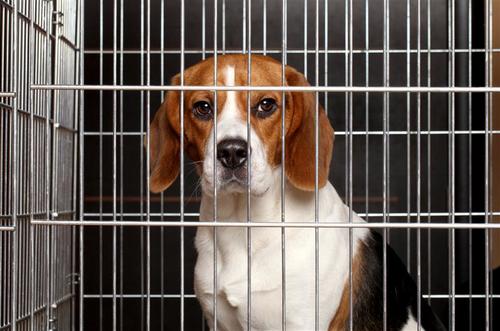Stagnation persists in snail-paced government response to animals used in GB testing labs
Released today: the annual statistics of scientific procedures performed on living animals reveal the disappointing ‘phaseout’ of animals used in scientific research in Great Britain.
In the 2024 Labour general election manifesto, the message was ‘Change’, with a firm position to work with scientists, industry, and civil society towards phasing out animal testing. Yet, the delayed 2024 statistics released today have shown a mere 1% decrease in procedures carried out compared to 2023, anything but real ‘Change’ for animals used in science in Great Britain.
The Animals in Science Regulation Unit (ASRU) within the Home Office is tasked by the government with protecting animals in science by ensuring compliance with the Animals (Scientific Procedures) Act 1986 (ASPA). Kate Salmon, Naturewatch Foundation campaign manager, who sits on the Protection and Welfare Stakeholder Group, meeting quarterly with the unit, said, “The numbers released today are a clear indication that our current government is in no rush to end the use of animals in scientific research. It couldn’t really be any slower. Whilst I recognise that there are complexities with ‘just ending animal testing’, there are many areas that could be ceased immediately, such as making it mandatory to use historical data for chemical safety checks in household products, rather than it being optional. When there is no legal requirement to test on animals, why are companies allowed to do so?”
In May 2025, the then Secretary of state for environment, food and rural affairs, Rt Hon Steve Reed OBE MP said, “I have spoken to a lot of the companies that are required to carry out testing on animals and, in many cases, they will tell you that they carry it out only because they are required to by regulation and legislation, not because it adds anything of value that they can use in developing better or safer products.”
It is believed that the testing in question, required by regulation and legislation, refers to toxicity testing, of which the controversial use of beagle dogs is directly linked. Many toxicity tests involve repeated dosing, often without pain relief, and for days on end.
The Home Office, through ASRU, has a responsibility to protect animals in science. Yet, the unit continues to issue licences where even the minister at the time openly stated that the companies involved had advised him that the testing of animals added nothing of value, bringing into question the harm-benefit analysis required to issue licences.
Kate Salmon continued, “The entire legislative structure on animal testing in the UK is a mess. Ministers have even said it themselves, yet we continue to see a paralysis with progress to address this. Meanwhile, millions of animals, including dogs, pigs, monkeys, horses, fish, etc, are put through pain and suffering before being killed year on year. Why, in 2025, is a modern society, like the UK, still involved in such unnecessary and barbaric procedures, like those we know take place?”
Naturewatch Foundation is calling on the government to immediately remove loopholes that permit the testing of household ingredients on animals, where there is no regulatory requirement to, under the 2015 household product animal testing ban.
More information and advice is available on the Naturewatch Foundation website: www.naturewatch.org
This press release was distributed by ResponseSource Press Release Wire on behalf of Naturewatch in the following categories: Environment & Nature, Farming & Animals, Public Sector, Third Sector & Legal, for more information visit https://pressreleasewire.responsesource.com/about.
